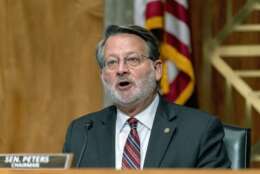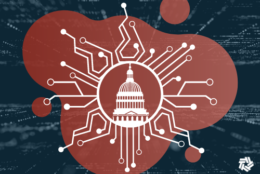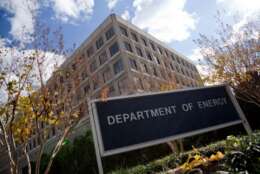Energy Department
-
The agency is continuing to work on ways to boost the security of the electric grid after kicking off a largescale initiative last year.
February 16, 2022 -
In today's Federal Newscast, House Republicans are pressing Energy Secretary Jennifer Granholm on how she is abiding by the STOCK Act.
February 15, 2022 -
In today's Federal Newscast, the Homeland Security and Governmental Affairs Committee is set to consider a bill combining incident reporting requirements and updated federal cyber standards.
February 11, 2022 -
The 13th Federal IT Acquisition Reform Act (FITARA) scorecard hearing offered some ideas for future ways to measure agency IT modernization progress.
January 25, 2022 -
The National Science Foundation and USAID received “A” grades under the House Oversight and Reform Committee’s 13th Federal IT Acquisition Reform Act (FITARA) scorecard.
January 20, 2022 -
In today's Federal Newscast: The First workday of 2022, brought Feds in DC their first snow day of 2022. A local union president said just closing some museums is causing the spread of COVID-19. And the Air Force is expanding uniform options for pregnant airmen.
January 03, 2022 -
In today's Federal Newscast: A former top government scientist is exposed for thousands of dollars in sloppy expense-account reporting. An $83 million contract might mean millions of COVID test kits in America's future. And online military exchanges are now available to a new crop of customers.
December 30, 2021 -
The Biden administration has affirmed a Trump administration interpretation of high-level radioactive waste that is based on the waste’s radioactivity rather than how it was produced.
December 29, 2021 -
Public comments on the Federal Mobility Group's draft International Travel Guidance for Government Mobile Devices are open now through Dec. 28.
December 16, 2021 -
The Biden administration isn't waiting for Congress to pass the Build Back Better Act to reduce greenhouse gas emissions from federal buildings.
December 10, 2021 -
Keeping the electrical grid top notch will take more than wires. It'll take algorithms.
December 06, 2021 -
In today's Federal Newscast, you can add water issues at federal properties to the list of unforeseen consequences from the lockdown.
November 30, 2021 -
A new funding program from the Energy Department aims to enlist low income and underserved communities in finding answers to climate questions. The Inclusive Energy Innovation Prizes will give challenge winners up to $250,000.
November 05, 2021 -
NIST, in a request for information posted Wednesday, said the upcoming framework will define trustworthy AI in terms of transparency, fairness and accountability.
July 28, 2021 -
In today's Federal Newscast, the Defense Department Inspector General is undergoing an evaluation to find out how the Pentagon would respond if the "nuclear football" was stolen, lost or compromised.
July 22, 2021














